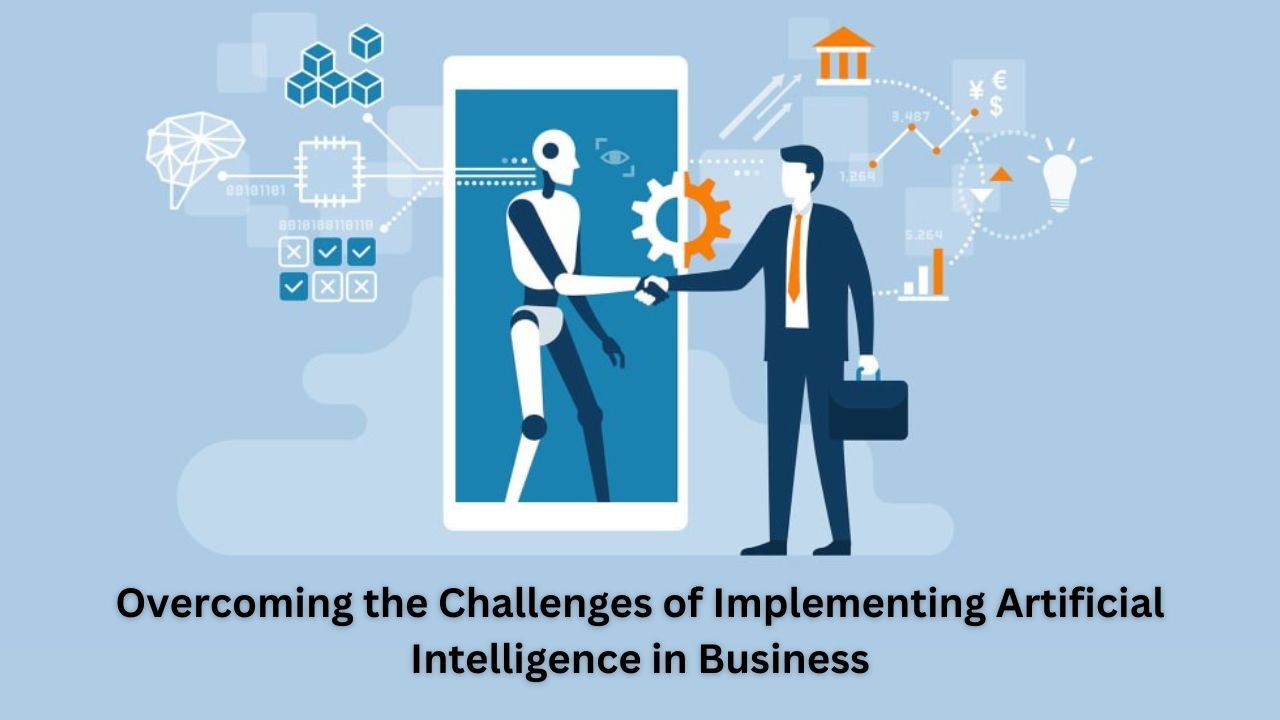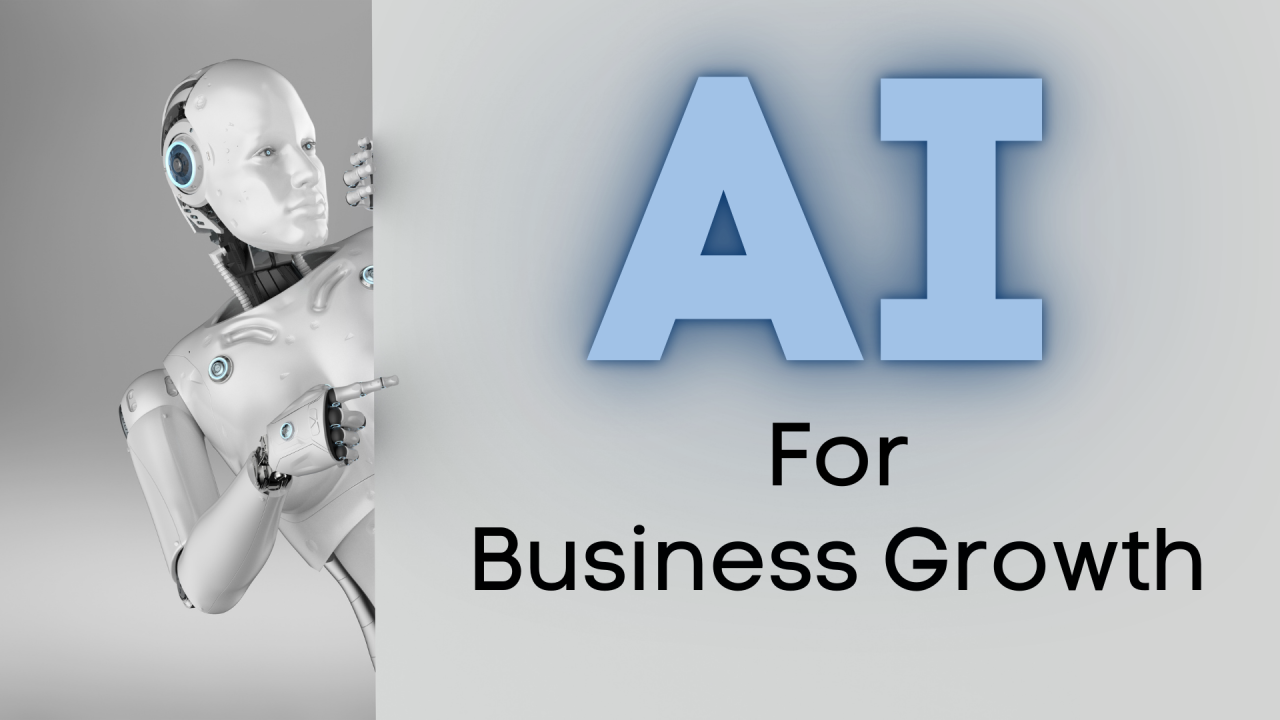Artificial Intelligence is much more than just a concept that is reserved only for sci fi movies. It’s a transformative technology that is reshaping the business landscape. From automating mundane tasks to providing actionable insights, AI has now become indispensable for many companies looking to grow, adapt, and stay competitive. In this guide, we’ll explore how you can harness the power of AI to grow your business while strategically leveraging custom software development to maximize its potential.
Understanding the Power of AI in Business
AI includes a range of technologies. These technologies include
- Machine Learning
- Natural Language Processing (NLP)
- Computer Vision and
- Robotics
These technologies work together to analyze data, predict trends, and optimize operations in ways that were once unimaginable.
Why AI Matters for Business Growth
- Efficiency: AI streamlines processes, allowing businesses to do more with less.
- Accuracy: Automated systems reduce human error, ensuring better results.
- Scalability: AI solutions are capable of growing with your business, handling larger volumes of work as needed.
According to a report by PwC, AI is capable of contributing up to $15.7 trillion to the global economy by 2030, with productivity gains accounting for $6.6 trillion of this growth. Clearly, businesses that adopt AI early are positioned to lead their industries.
Practical Ways to Use AI in Your Business
Here are actionable strategies to integrate AI into your business operations:
-
Streamlining Operations with Automation
Daily tasks like data entry, payroll processing, and customer queries can consume valuable time. AI powered tools like robotic process automation (RPA) can take care of these tasks with speed and precision.
Example:
- Automating invoice processing can save businesses up to 80% of the time usually spent on manual tasks.
- Chatbots powered by NLP can handle customer inquiries 24/7, reducing response times and enhancing customer satisfaction.
Custom software development can play an important role here by creating bespoke automation solutions tailored to your specific business needs.
-
Improving Customer Experience
AI helps businesses to understand their customers better and provide personalized experiences. Recommendation engines, for instance, analyze user behavior to suggest products or services they’re likely to purchase.
Example:
- Amazon’s recommendation engine generates 35% of its total revenue.
- AI-driven customer support tools can analyze sentiment in real-time, ensuring issues are resolved effectively.
-
Data Driven Decision Making
AI excels at analyzing large datasets to uncover patterns and insights. Predictive analytics can help businesses forecast demand, optimize pricing, and identify new market opportunities.
Example:
- Retailers can use AI to predict which of their products will be in high demand during specific seasons.
- In marketing, AI can analyze campaign performance to identify the strategies that yield the best ROI.
Custom software development makes sure that your AI analytics tools are integrated seamlessly with your existing systems, providing a unified platform for decision making.
- Improving Marketing Strategies
AI can revolutionize your marketing efforts by targeting the right audience with the right message at the right time. Tools like AI powered ad platforms use algorithms to optimize ad placement and bidding.
Example:
- Facebook Ads’ AI driven targeting increases conversion rates by identifying audiences most likely to engage.
- Email marketing platforms use AI to optimize send times and subject lines for better open rates.
-
Optimizing Supply Chain Management
AI can streamline supply chains by predicting demand, managing inventory, and optimizing logistics. Real-time tracking and predictive maintenance are game changers for industries reliant on physical goods.
Example:
- AI algorithms reduce warehouse picking time by up to 20% through optimized layouts.
- Predictive analytics help avoid stockouts and overstocking, saving money and improving efficiency.
-
Boosting Employee Productivity
AI tools can assist employees by handling repetitive tasks and providing insights that aid decision-making. For example, AI-powered virtual assistants can schedule meetings, manage emails, and remind teams of deadlines.
Example:
- Tools like Grammarly use AI to improve communication quality, enhancing productivity and professionalism.
- AI-powered project management tools like Trello or Monday.com help teams stay organized and efficient.
-
Elevating Cybersecurity Measures
Cybersecurity is a growing concern for multiple businesses and AI can be helpful in this regard as well. It can be used to detect and respond to threats faster than traditional methods. Machine learning algorithms identify unusual patterns in network traffic, flagging potential attacks.
Example:
- AI-driven cybersecurity tools can detect phishing attempts and malware before they cause harm.
- Custom software development can help create robust security solutions tailored to your specific industry needs.
The Role of Custom Software Development in AI Integration
While off the shelf AI solutions are widely available, they often lack the flexibility needed to address unique business challenges. This is where custom software development comes into play.
-
Tailored Solutions for Unique Needs
Every business is different, and a one-size-fits-all approach rarely works. Custom software development allows you to build AI tools designed specifically for your operations, ensuring maximum impact.
Example:
- A retail company might need a customized recommendation engine that aligns with its unique product catalog and customer base.
-
Seamless Integration
Integrating AI into current systems can be complex. Custom software development ensures a smooth integration process, minimizing disruptions and maximizing efficiency.
Example:
- Custom APIs can connect AI analytics tools with your CRM or ERP systems, creating a unified data ecosystem.
-
Scalability and Future Proofing
Custom software solutions can be tailored to scale with your business, ensuring they remain relevant as your needs evolve.
Example:
As your user base grows, a custom AI solution can be scaled to handle increased demand without compromising performance.
-
Gaining Competitive Edge
Custom software development allows businesses to create proprietary AI solutions that competitors cannot replicate. This provides a unique advantage in the market.
Example:
- A financial services company could develop an AI driven risk assessment tool tailored to its unique portfolio.
Success Stories of AI Driven Growth
-
Netflix: Personalized Content Recommendations
Netflix’s AI-driven recommendation engine accounts for over 80% of the hours streamed on the platform. By analyzing viewing habits and preferences, the AI make sure users are spending more time on the platform, boosting engagement and retention.
-
Starbucks: Predictive Analytics
Starbucks uses AI to optimize store operations and personalize customer experiences. For example, its AI-driven app suggests purchases based on previous orders and local trends, increasing sales and customer satisfaction.
-
Walmart: Supply Chain Optimization
Walmart leverages AI to optimize inventory management, reducing overstock and stockouts. This has resulted in significant cost savings and improved customer satisfaction.
-
Spotify: Customized Playlists
Spotify’s AI algorithms analyze listening habits to create personalized playlists for users. This enhances user experience and increases customer loyalty.

Overcoming Challenges in AI Implementation
While AI offers immense potential, its implementation is not without challenges. Here’s how to address some common issues:
-
Data Quality and Quantity
AI thrives on data, but poor quality or insufficient data can limit its effectiveness. You should invest in robust data collection and management systems to ensure your AI tools have the input they need.
-
Employee Training
Employees may be hesitant to adopt AI tools, fearing they’ll be replaced. But this situation can be handled promptly by offering training programs to help your team understand how AI complements their roles and increases productivity.
-
Cost Considerations
AI implementation can be expensive. This is especially true for small businesses. However, starting with smaller, more affordable AI projects can demonstrate ROI and justify further investment.
Key AI Trends to Watch in 2025 and Beyond
The AI landscape is constantly evolving. Here are some trends that will shape the future of AI in business:
-
Explainable AI (XAI)
Explainable AI (XAI) is quickly becoming increasingly important as businesses integrate AI deeper into their operations. Transparency and accountability are essential, especially in industries like finance and healthcare, where AI-driven decisions can have significant impacts. XAI aims to make AI processes understandable, enabling stakeholders to trust and validate outcomes.
-
AI Powered Hyper Personalization
Hyper personalization is poised to redefine customer engagement. By leveraging AI, businesses can create ultra-targeted marketing campaigns and product offerings. This goes beyond general segmentation, tailoring experiences at an individual level. Companies that hop on this trend are likely to see improved customer loyalty and higher conversion rates.
-
Edge AI
Edge AI processes data locally on devices instead of relying on centralized cloud servers. This is quickly gaining traction due to its ability to reduce latency, enhance security, and enable real-time decision-making. Edge AI is particularly valuable for industries like manufacturing and healthcare, where immediate responses are critical.
-
AI and Sustainability
AI is also being used to tackle environmental challenges. Changes such as optimizing energy use and reducing waste. Businesses that embrace these solutions can improve their sustainability credentials.
Harnessing AI for Business Growth
AI is a transformative force that is capable of driving significant business growth when implemented effectively. From automating operations to delivering personalized customer experiences, AI offers endless possibilities for innovation and efficiency.
Through investing in custom software development you can create tailored AI solutions specific to your needs, ensuring seamless integration, scalability, and long-term success. Whether you’re a small business just starting with AI or an enterprise looking to enhance your existing tools, the time to embrace AI is now.
Remember, the key to business success using AI lies in strategic planning, employee training, and a commitment to leveraging data effectively. With the right approach, AI can become your most valuable business ally. Helping you seamlessly navigate through the complexities of the modern market and achieve sustainable growth.

